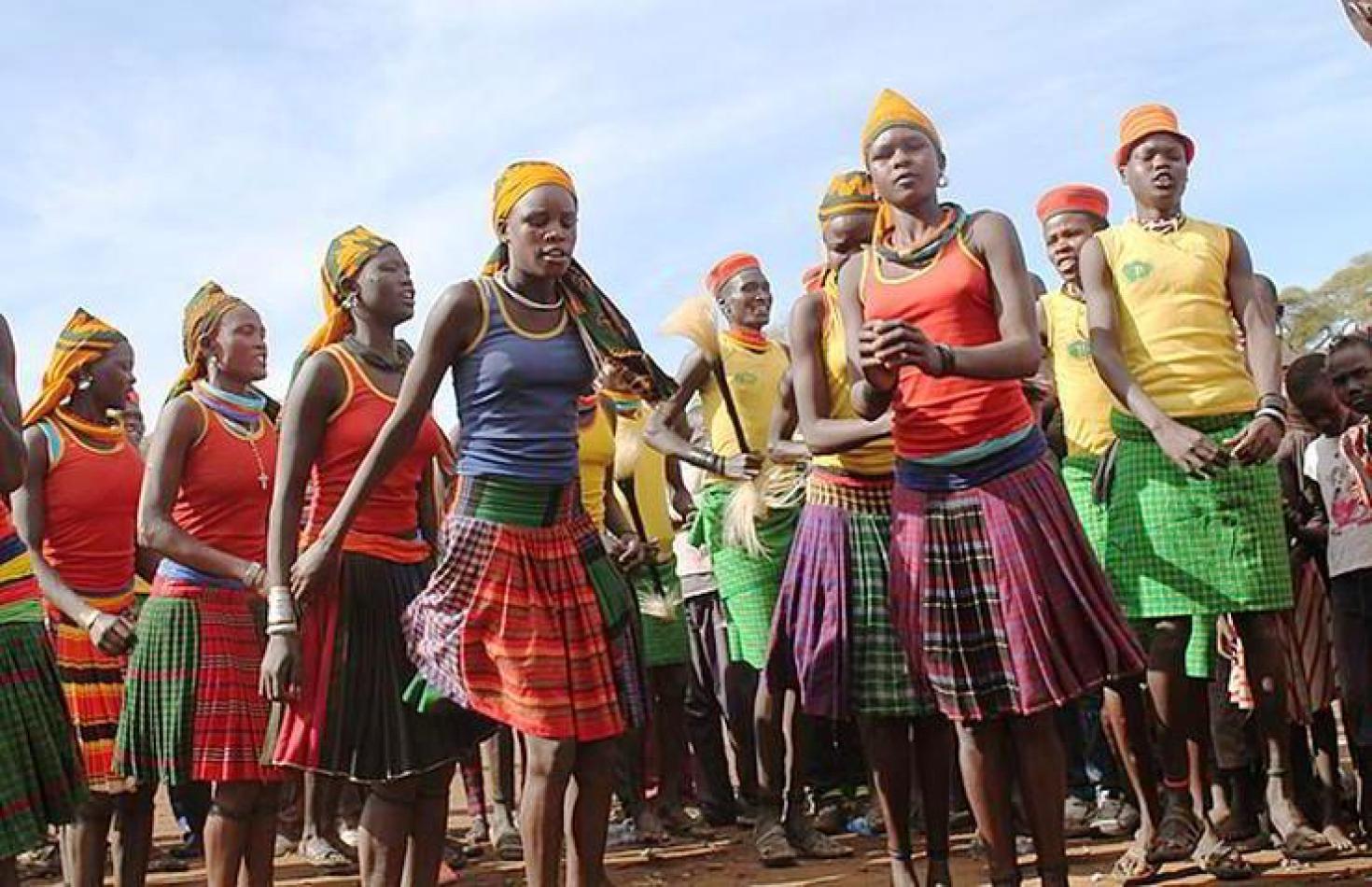Daniel Comboni
Comboni Missionare
Institutioneller Bereich
Andere Links
Newsletter
Friday, April 25, 2025
Atuwa is a celebration among the Karimojong, an ethnic group of agro-pastoral herders living mainly in north-east Uganda. This feast is the most genuine expression of the African sense of brotherhood. In particular, it showcases Karimojong social traditions and lifestyle.
The celebrations unfold between the September and November moons, at the end of the rainy season. The event lasts from five to ten days. It is celebrated when the harvest is plentiful, so there is an abundance of cornmeal mush and beer to offer relatives and friends arriving for the occasion from afar. They will be hosted by their families in the community according to tradition. The sense of hospitality, deeply rooted in African culture, is reaffirmed particularly on this occasion.
Atuwa is celebrated every five years by a principle of rotation among the numerous Karimojong groups. The availability of big oxen is essential, so the oxen’s owners and the elders of the community, the ngikasikuo, decide when the celebration should begin. Those giving the oxen must belong to sacred clans: the ngitaruk, ngikaala, and ngimailoko. When the event has been decided, the organizers gather in the wood and, sitting under the trees, decide when and how to celebrate atuwa.
When etal, the moon requested by tradition, rises, young people go to the head of the community, called ekapolon, and his second-in-command, the ejakait, and say, “The moon has risen and we intend to celebrate the atuwa.” The news about the feast spreads rapidly.
On the eve of the celebration, groups of men and women wearing dresses glittering with rich ornaments arrive from other villages. Men wear leopard-skin clothes, helmets decorated with ostrich feathers, and arm and ankle bells, called ngitoroi.
Women wear multi-coloured beaded necklaces, ngaculo, around their necks and loins. Everybody goes towards the place of celebrations, singing and playing the peculiar trumpet made from antelope horn. After exchanging pleasantries with friends and relatives, they all sit down on the riverbank. Each group chooses a place to set up camp and spend the night.
Meanwhile, the local young people kill two or three oxen with spears, roast the ox meat, and distribute it to everybody, while women offer beer. Young boys and girls participate enthusiastically. Everyone can take part in the atuwa celebrations, regardless of whether or not they have undergone male or female, akiwor, initiation rites. Later in the night, the sharp sound of a horn invites everybody to dance.
Everybody jumps rhythmically and sings the akimwomwor solemn chant, to the sound of the horns. The women’s high-pitch screams create a vocal background. Men and women, divided into several groups, sing and dance. They only stop to get a drink or to have something to eat.
At dawn, the atuwa organizers gather the oxen into an enclosure of thorn bushes and stakes, built for the occasion. At around 8 in the morning, the oxen are driven to the trees where the elders have gathered. The oxen’s owners and the young members of the ngitaruk, ngikaala and ngimailoko sacred clans, all part of the pian group, kill the animals. On solemn occasions, such as the atuwa or the akiudakin, it is customary for young people of the Karimojong to demonstrate their bravery by killing oxen in front of community members.
Before beginning the banquet, the men who underwent the initiation process gather around an epeduru, a large tamarind tree, or an ebobore, a wild fig tree. An assembly is held in the shadow of the trees.
The official speeches, akigal, are mixed with incantations and invocations to the deity akujé. After the speeches, the banquet begins, according to Karimojong tradition. On this occasion, children and women are allowed to eat meat, generally reserved for elders.
When the banquet is over, the prolonged sound of a horn, erupepé, is heard. Everybody gathers for the official dance, a sacred moment foreseen by the ceremonial. This dance, called ekimwomwor, marked by a quick rhythm, elegant singing and movements, expresses the common feelings of brotherhood and joy.
In the late afternoon, tired of dancing, people go back to the villages, staying with their friends and relatives. Here, they drink local beer in an atmosphere of serenity and repose. At night, at least in the main centres, many resume dancing for hours.
After ten days of celebration, when they have had enough of food and dance, people go back home, happy for having strengthened the bonds of brotherhood and kinship. For the Karimojong, atuwa celebrates friendship, giving each individual an overwhelming joy that spreads from the family group to the people of the village and to those of the entire ethnic group.
(A.P.) – (Photo: CC BY-SA 4.0/Otimicwalker
Comboni Missionaries




